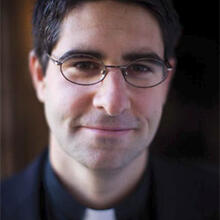Today the Catholic Book Club is discussing The Patriarch, David Nasaw's biography of Joseph P. Kennedy. In order to facilitate discussion, I offer some questions here for discussion. I welcome everyone to contribute answers to these questions, your own questions, or any reactions you have to the book.
1. Having considered the entire life of Joseph Kennedy, from his days as “Honey Fitz’s son-in-law,” to his unrivaled financial success, to the death of his four eldest children and his own death, was Joseph Kennedy a happy man?
2. Knowing both the affection he showed his children and the way he conducted his own personal life, was he a good father?
3. Do you agree with Richard Cardinal Cushing’s assessment of the American Hierarchy’s rejection of John F. Kennedy as a presidential candidate in 1960? (Nasaw, p723-725) How has the 1960 election affected Catholic candidates for political office in the United States today?
I sincerely look forward to your responses.









I will begin with some reflections on Kevin's first question. I am about halfway through the book. Joe Is in London as ambassador. He has sent his family back home to the United States following German aggression in Europe. He is doing all he can to prevent U.S. involvement in any war, which makes him very unpopular in London. Winston Churchill, a man Joe fears because of his hawkishness, is now prime minister.
Is he happy? In his interview with Kevin, Professor Nasaw said that Kennedy was generally content until the death of his first son, Joe Jr. in the war. I, however, do not see a happy man. I see a man who is restless. Ambitious, yes, but also not entirely happy with the course of his life. He moves from one job to another, constantly travels and has a series of affairs. He takes pride in his Irish catholic heritage, but his faith doesn't seem to offer him much in the way of consolation. I do not mean to judge the man, but only note that like many human beings he seems to be in search of something he can't quite find.
More later...
Good points Kevin. Joe is definitely discontent in London. But was he happy before he was sent to London? That may be the more interesting question. He is undoubtedly financially succesful. He has a big, beautiful family, and he is one of the most influential men in the country. But as I said, he seems restless. As Nasaw said in your interview, he is a man who gets angry a lot. Why do you think that is?
Another thought: because the reader knows what's going to happen to Kennedy's five oldest children, the book imparts a powerful sense of foreboding. What I find most tragic is the fate of young Rosemary. While Joe and Kathleeen die in plane crashs, and Jack and Bobby from assassin's bullets, Rosemary is lobotomized at Joe's request and spends the rest of her life away from her family. I am interested to read about how this affected Joe. In his defense, the procedure was little used at the time and doctors did not know its full effects.
It is very sad to read about how confused the family is by her condition. Here is a case where Joe's can-do attitude really was not helpful. He is intent helping Rosemary, but the fact was that there wasn't much he could do other than provide a loving home. And yet he separates her from the family at a key moment in their lives: when war begins in earnest, all of the Kennedy are sent home except Rosemary, because Joe thinks she is receiving better care in London.
I guess this gets to Kevin's question about whether Joe was a good father. He definitely provided for his children, and engendered among them a profound dedication to public service. But I am sometimes put off by his parenting style. He is constantly coaching his kids. I understand the desire to see your children succeed, but oftentimes he doesn't let them be themselves.
I see your point on parenting, Bill. On Rosemary's behavior, Nasaw doesn't say anything, as far as I can remember, about violent outbursts.
Thanks. Kevin, I think I am just about to reach this part of the book.